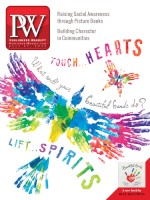Publishers across the spirituality and religion spectrum are publishing books for Millennials, and they often have more in mind than reaching a sales goal. With aging congregations and plummeting church attendance—particularly among the young—Christian publishers especially view these books as essential to their mission.
But will screen-loving Millennials read them? According to David Kinnaman, president of the Barna Group research organization: “Three out of five Millennials say they read books at least monthly ‘to learn something new or to get information.’ Among Millennial practicing Christians, that grows to nearly seven out of 10.”
Current books in the religion and spirituality category speak to problems confronting many Millennials today: wrestling with a disappointed, uncertain, or downright negative view of religion—and, for those committed to a faith, navigating the practical challenges of young adulthood while living out that faith in a world that is sometimes hostile to their beliefs. Those struggling with their faith (or with losing it) might be drawn to memoirs of others who’ve been there, like Post-Traumatic Church Syndrome, by 33-year-old Reba Riley, which S&S imprint Howard Books is publishing in August.
Faith That Isn’t Simple
InterVarsity Press is on the lookout for “emerging adult authors who communicate with their peers in authentic ways,” senior editor Al Hsu says, pointing to Erin S. Lane’s Lessons in Belonging from a Church-Going Commitment Phobe, which was published earlier this year. Coming in 2016 is Life’s Too Short to Pretend You’re Not Religious, by David Dark. Fewer Millennials today declare a church affiliation, yet many say they believe in God and practice prayer, referring to themselves as “spiritual but not religious.” Dark encourages those who have faith not to shy away from the term. In March 2016, Baker plans to publish Good Faith: Being a Christian When Society Thinks You’re Irrelevant and Extreme, a book by the Barna Group’s Kinnaman and Gabe Lyons that encourages Christian Millennials to embrace the religion.
Publisher Virgil Tipton says the Catholic press Liguori Publications seeks “to reach those at the edges of the church, where many Millennials find themselves,” with books like the recently released The Catholic Drinkie’s Guide to Home-Brewed Evangelism by Sarah Vabulas. A Millennial, beer connoisseur, and home-brewer, Vabulas uses her Catholic Drinkie blog and social media presence to promote the faith.
WaterBrook Multnomah v-p and publisher Alex Field formed a dedicated in-house team to research Millennials, and says the team’s findings are influencing publishing strategies, especially for packaging, cover art, and cover copy. WaterBrook is publishing books for Millennials that are by Millennials, including (Un)qualified: How God Closes the Gap Between Your Weakness and Your Dreams, by 35-year-old pastor Steven Furtick (Mar. 2016).
In August, Howard Books releases One Thousand Wells, by Jena Lee Nardella, one of Christianity Today’s “33 Under 33” and cofounder of Blood: Water, a nonprofit that builds wells and provides health care in Africa. Nardella’s faith was severely tested there, and she ultimately learned, as the book’s subtitle says, “to love the world instead of save it.”
The New New Adult
Plenty of books address practical matters in addition to heady questions of faith. In January, Moody published The Leap by Robert Dickie, who writes that long-term careers and conventional jobs are being replaced by “gigs”—part-time, contract, or freelance work. Dickie addresses such topics as what would Jesus develop? (WWJD) and how to be an entrepreneur by following Christ’s model.
From Zondervan comes Garden City: Work, Rest, and the Art of Being Human (Sept.) by John Mark Comer, a young pastor in Portland, Ore. Half of his 6,000-member congregation is made up of single college students and 20-somethings. And the title of a book by Paul Angone that Zondervan published in April—All Groan Up: Searching for Self, Faith, and a Freaking Job!—says it all to those just graduating from college.
Social media is, of course, a fact of Millennial life, and something earlier generations did not have to navigate. In #Stolen: Is Social Media Stealing Your Identity? (Abingdon, Aug.), college student and aspiring women’s ministry leader Jessica Fralin cautions that creating an online persona that is “better, smarter, and funnier” than you really are can be confusing in the real world and encourages readers to instead find their indentities through faith.



 Volume 262
Issue 30
07/27/2015
Volume 262
Issue 30
07/27/2015





